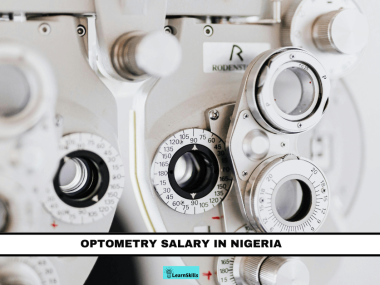If you’re considering a career in mass communication in Nigeria, you need to know the earning potential in this field.
The average starting salary for mass communication professionals can range from ₦120,000 to ₦170,000 monthly. However, this can vary based on your location, experience, and specific role.
In major cities like Abuja, a Communications Specialist might earn around ₦114,000 per month, which can offer a solid foundation for those starting out. As you gain experience and skills, salaries can grow significantly, with some roles even reaching upwards of ₦3 million annually.
Overview of Mass Communication Careers in Nigeria
Mass communication offers a variety of career paths in Nigeria. You can explore fields like journalism, advertising, public relations, film, and television.
Journalism and Multimedia Journalism
In journalism, your role can include reporting, writing, and editing news stories. You may work for newspapers, magazines, or online platforms.
Multimedia journalism combines traditional reporting with digital elements, such as video and social media. You’ll need skills in researching and presenting news. A strong understanding of media ethics is essential for this field.
Salaries can vary widely. For instance, entry-level journalists may earn between ₦15,000 to ₦100,000 per month. More experienced reporters can earn significantly higher.
Advertising and Public Relations
Advertising and public relations focus on creating and maintaining a positive image for clients. In advertising, you might work as a copywriter, designer, or media planner. Your goal is to craft engaging campaigns that attract attention.
Public relations professionals manage communication between organizations and the public. You’ll write press releases, organize events, and handle crisis communications.
Salaries for advertising and PR roles can range from ₦20,000 to over ₦120,000 monthly, depending on your experience and the company size.
Film and Television Production
The film and television sector offers diverse opportunities. You can work as a director, producer, or camera operator. Each role involves collaborating with a team to create engaging content.
In Nigeria, the film industry, often known as Nollywood, has grown rapidly. You may find jobs in scriptwriting, editing, and set design.
Salaries in this sector can vary greatly. Entry-level positions might start at ₦30,000, while experienced professionals can earn much higher based on project success.
Salary Structures for Mass Communication Professionals
Salary structures for mass communication professionals in Nigeria vary widely based on experience and the specific role. Here is a clearer picture of what you can expect at different career levels.
Entry-Level Positions
In entry-level roles, such as a public relations officer or a junior reporter, you can expect to earn between ₦15,000 and ₦100,000 monthly, especially in the private sector.
| Position | Average Monthly Salary |
|---|---|
| Public Relations Officer | ₦50,000 |
| Junior Reporter | ₦45,000 |
These roles often require a Bachelor’s Degree in Communications or a related field. While salaries might be lower, these positions provide valuable experience to advance your career.
Mid-Level Roles
For mid-level roles like PR manager or communication specialist, salaries increase significantly. You can expect to earn between ₦120,000 and ₦450,000 monthly.
| Position | Average Monthly Salary |
|---|---|
| PR Manager | ₦300,000 |
| Communication Specialist | ₦250,000 |
These salaries depend on your experience, the company size, and your specific responsibilities. Candidates with specialized skills, such as digital media expertise, may command higher pay.
Senior Positions and Lecturers
In senior positions, such as PR director, salaries range from ₦500,000 to ₦1,200,000 monthly.
| Position | Average Monthly Salary |
|---|---|
| PR Director | ₦800,000 |
| Lecturer I | ₦400,000 |
| Lecturer II | ₦300,000 |
Senior roles often require years of experience and advanced degrees. Lecturers in universities also have competitive salaries, influenced by their expertise and research contributions.
Impact of Location on Salaries
Location plays a crucial role in determining the salaries for mass communication professionals in Nigeria. Major cities like Lagos offer different pay scales compared to other regions. Local market conditions and demand for skills influence these variations.
Salary Variations in Lagos
In Lagos, salaries for professionals in mass communication tend to be higher than in other parts of Nigeria. This city is the hub of media and entertainment, which leads to increased job availability.
Average Salaries
- Entry-level positions: ₦800,000 to ₦1,200,000 per year
- Mid-level positions: ₦1,500,000 to ₦2,500,000 per year
- Senior positions: ₦3,000,000 and above per year
The presence of large media companies also drives competition, pushing wages upward. The Nigerian Guild of Editors (NGE) has noted this trend and frequently updates salary recommendations for journalists.
Differences Across Other Regions
In contrast, salaries in regions outside Lagos, such as Abuja or Port Harcourt, are generally lower. For instance, in these areas, entry-level salaries range from ₦600,000 to ₦900,000 annually.
Salary Snapshot in Other Regions
- Entry-level: ₦600,000 to ₦900,000 per year
- Mid-level: ₦1,200,000 to ₦1,800,000 per year
Factors such as cost of living, local demand, and small media markets contribute to these differences. Job opportunities may be limited, which affects salary rates. Understanding these regional variations can help you make informed career decisions.
Qualifications and Advancements
In mass communication, education and professional qualifications play a vital role in your career growth. The more you invest in your skills and knowledge, the better your chances are for advancement and higher salaries.
Educational Requirements
To begin a career in mass communication, a Bachelor’s degree in mass communication, journalism, or a related field is essential.
Most universities in Nigeria offer programs that cover topics like media studies, public relations, and broadcasting.
Your coursework may include:
- Media ethics
- Writing for the media
- Journalism practices
Gaining practical experience through internships is also important. This experience enhances your resume and helps you build a professional network. Graduates often aim for strong curriculum vitae (CV) by highlighting relevant internships and projects.
Professional Qualifications Impact
Obtaining professional certifications can greatly enhance your qualifications. Many industry bodies offer certifications that focus on areas like public relations and digital marketing.
For instance, becoming a Certified Public Relations Specialist (CPRS) or joining organizations like the Nigerian Institute of Public Relations (NIPR) can improve job prospects.
Having additional qualifications can lead to higher salaries and faster promotions. Employers often value candidates who show commitment to professional development. You can also showcase these certifications on your CV to stand out during job applications.
Job Market and Application Process
The job market for mass communication graduates in Nigeria offers various opportunities in fields like media, public relations, and advertising.
Researching Opportunities
Start by identifying the sectors that interest you, such as media houses, PR firms, or corporate communications. Use websites like Jobberman, MyJobMag, and LinkedIn to find job listings tailored to your qualifications.
Networking is also key. Attend industry seminars, workshops, and career fairs to connect with professionals and learn about hidden job openings. Joining relevant social media groups can keep you updated on job postings and industry changes.
Pay attention to application closing dates. Many organizations post positions for a limited time, so be proactive in applying.
Application Submission Tips
A strong application includes a tailored CV and cover letter. Focus on your relevant skills and experiences. Highlight any internships or projects related to mass communication. Be sure to provide 2-3 referees who can vouch for your work ethic and skills.
Make these contacts aware they might be contacted by potential employers. Double-check your application for grammatical errors.
Applying early can also give you an edge over other candidates. Keep track of your applications and follow up if you haven’t heard back within a couple of weeks.










